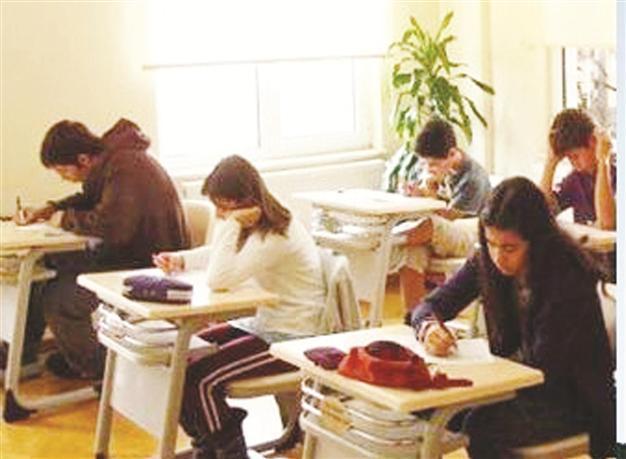Private courses troubling Turkey with closure row
ISTANBUL

Over 1,2 million students attended taken
private courses in Turkey last year.
Turkey’s large private tutoring industry, which has been growing enormously for decades on the sidelines of the central university entrance exam system, is in the spotlight once again, with Prime Minister Recep Tayyip Erdoğan – and a Cabinet minister – pledging to abolish them within a year.
There were 4,055 firms offering private tutoring services in Turkey last year, according to the education industry report issued by the Union of Chamber and Commodity Exchanges of Turkey (TOBB), and more than 1.2 million students attended private tutoring courses last year. The number of such schools was only 1,730 in 2000, with 174,496 students.
Erdoğan said over the weekend that the dershane system, which refers to businesses offering private tutoring and preparatory courses, often aimed at university entrance exam preparation, will be abolished in the 2013-2014 school year.
The dershane system has become unsustainable, and has almost replaced the regular school system, Industry Minister Nihat Ergün said yesterday, commenting on the prime minister’s remarks in an interview with a private broadcaster.
“Especially during the last year of high school, students focus only on their studies at the dershane. The system hampers the importance the school system; it is not sustainable,” Ergün said, adding that the dershanes may be merged with the national education system. The government had earlier considered backing a system that would promote dershanes to open regular private schools, but the council of state rejected it.
“We will eliminate the private tutoring system,” Erdoğan said in his speech at a Justice and Development Party (AKP) meeting Sept. 9. “This is the common demand of my people, my citizens. If [dershanes] want to provide a service to the education system, they should establish schools. Then the government will pay for their educational services.”
The dershanes do not like this offer because the current system is more lucrative, he said.
There are 689 dershanes in Istanbul alone, as well as 444 in Ankara and 225 in İzmir. Regionally, the Marmara region has the highest concentration of dershanes, with a total of 1,190. Turkish families often feel obliged to send their children to dershanes, sometimes beginning many years prior to their taking the university entrance exam, due to rising competition for university places. These educational institutions employed 70,209 people, 50,209 of whom were teachers, in 2011. The sector generated total revenues amounting to more than 1.8 billion Turkish Liras and an unconsolidated profit of 62.5 million liras, based on fees of 1,500 liras per student last year.
More than 1.9 million people took the university entrance exam this year. However, the dershane sector is not limited to university entrance exam preparation, offering tutoring for different tests at other academic levels, including entrance exams for elite high schools.
“There has been such an imperial structure, such a system of exploitation, which has worked entirely in the favor of dershanes,” Erdoğan said.
Gray economyA large unregistered economy exists in the dershane sector, according to the TOBB report, which claims that a major reason for this is the tax burden on employment. Still, teachers at dershanes are paid much lower salaries compared with their colleagues at regular schools.
The current education system, with its focus on examinations, makes it unavoidable for students to attend dershanes, said Ahmet Özer, the secretary-general of the education sector labor union Eğitim-Bir-Sen, in a statement issued Sept. 10. The factors in the system that have given rise to the dershane industry should be abolished, he said.
Separately, the Education Ministry appointed yesterday nearly 40,000 teachers to public schools days before the start of the new education system.
